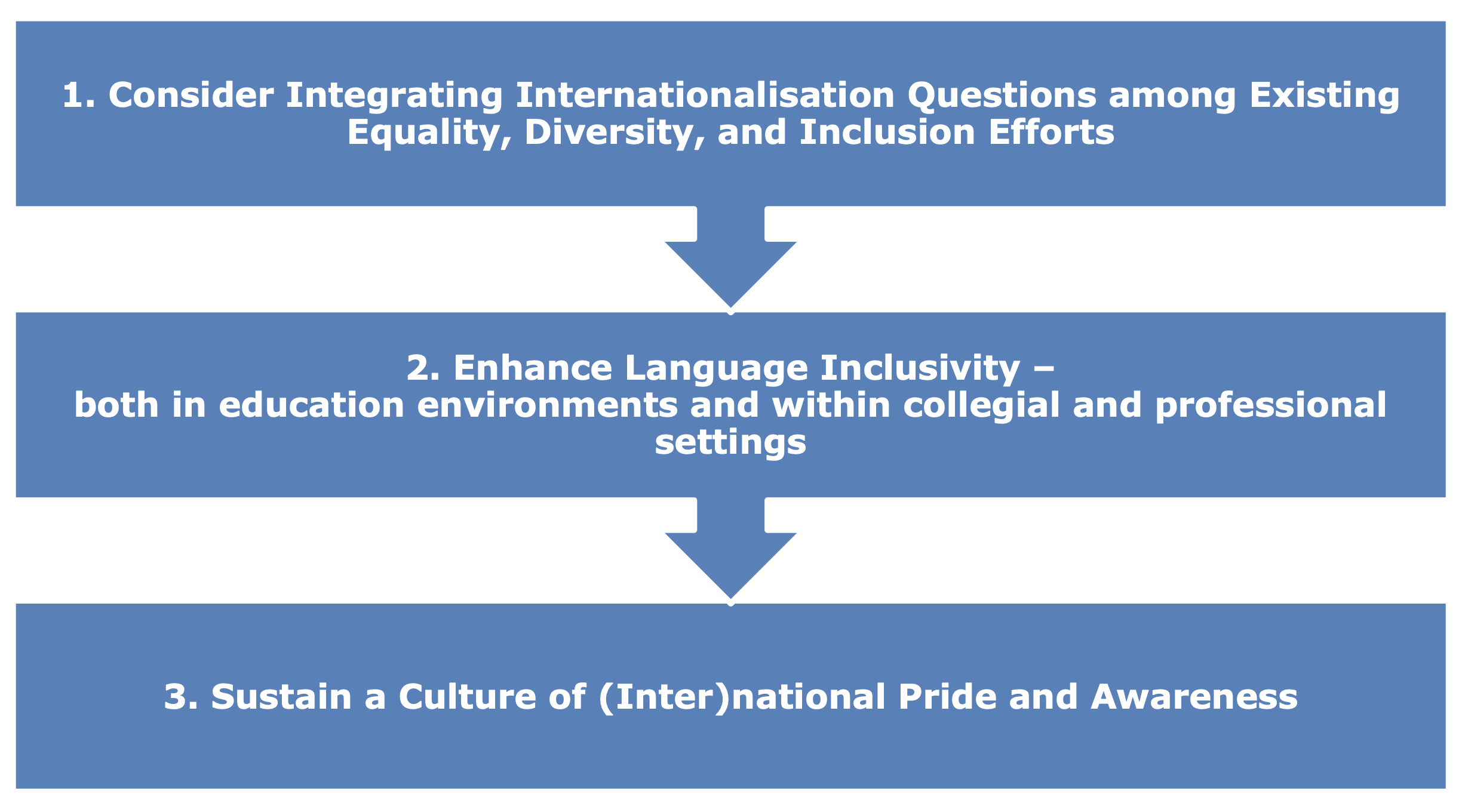Why focus on internationalisation?
What does it mean to be part of an international University? Over the past three years, the T@UU teacher community has been pursuing an agenda of enhanced connection and inclusion of, and among, members of staff and students at Utrecht University. One key pillar of our work is dedicated to paying attention to the connection between Dutch and international staff, and students, across the University.
There are clear indicators that the topic deserves attention. This became especially evident in the wake of the publication of the parliamentary letter of Minister Dijkgraaf on managing international student flows in higher education. However, the discussion within the T@UU community had started much earlier than that and aims at addressing fundamental strategic issues, not last-minute political trends.
In this report, the T@UU reflects on the evidence gathered over three years (2020-2023), through online and in-person one-to-one meetings, as well as two rounds of workshops. Such meetings and workshops were conducted with academic staff, support staff, and students from a variety of Departments within the University. They took place during a period which was particularly tumultuous, characterized by two main challenges. On the one hand, the outbreak of the global pandemic, and the huge effects that this had on the UU community. On the other, the recent debates regarding the possible restriction of the number of international students to be admitted at Dutch universities.
The report starts by conceptualizing internationalisation as an important aspect of education and research at Utrecht University. It also emphasizes the different understandings of what internationalisation might mean among a variety of members of the community, and it highlights the opportunities for further common growth. Considering this, the report presents an overview of topics that have come up for discussion repeatedly and that, as authors of this report, we argue warrant further attention on the part of the University.
Key Action Points
In the report, three key action point are suggested:

Figure 1. Three key action points concerning internationalisation
Tips for succes
Our TIPs for Success:
- Recognize the interconnected nature of inclusion, equality, and diversity with internationalisation initiatives. Foster collaboration between teams working on these issues to leverage synergies and address common challenges.
- Establish regular forums or workinggroups that bring together stakeholders from different areas to discuss and share insights on inclusive practices, ensuring that the perspectives of international and domestic communities are considered.
- Emphasize the value of diversity and inclusion in the university’s identity, reinforcing that these principles are integral to what makes the institution proud.
- Implement a flexible language policy that fosters inclusivity by involving participants in the decision-making process regarding the language of meetings – if possible. Consider the concept of Lingua Receptiva or ‘luistertaal’ proposed by Emmy Gulikers, Mieke Smit, and Jan Ten Thije, ensuring that it is effectively integrated into communication practices.
- Where applicable, promote proactive communication by informing participants in advance about the language in which a meeting or activity will be conducted, providing them with the opportunity to prepare.
- Conduct training sessions or workshops on effective communication strategies in multilingual environments, encouraging a culture of respect for diverse linguistic backgrounds. Recognize that all colleagues, but especially those in leading positions, have a big role in setting a constructive example.
- Regularly celebrate and showcase achievements related to internationalisation, inclusion, equality, and diversity – and the synergies between these domains – to instill a sense of pride among the university community, which can make its way into the classroom.
- Continue, and further develop awareness campaigns that highlight the university’s commitment to these values, emphasizing the positive impact they have on the academic environment.
- Establish feedback mechanisms to assess the effectiveness of policies and initiatives in the areas of language, inclusion, equality, diversity, and internationalisation.
Read the full Report TIPs for Success here.
